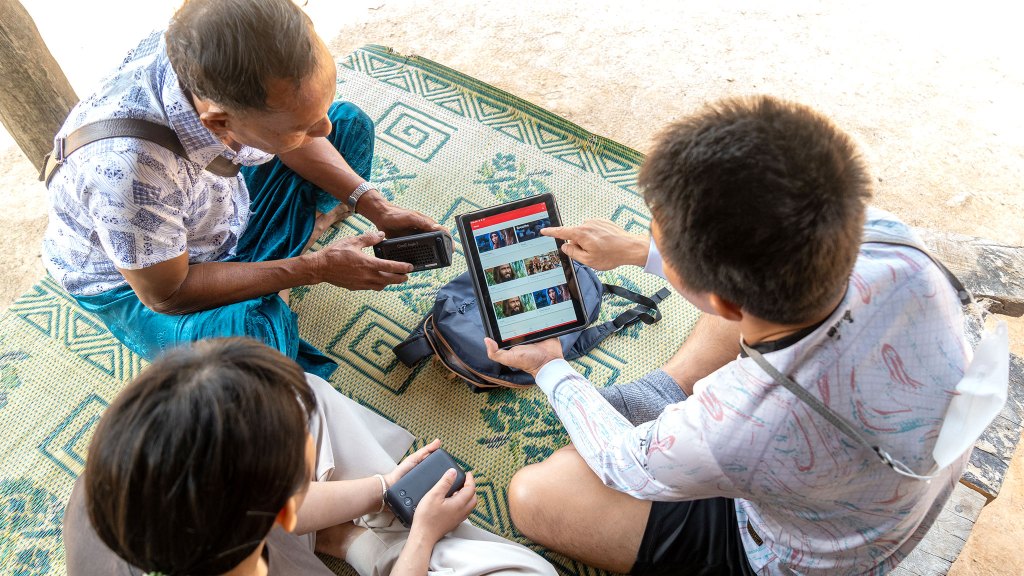Many Christians are enthusiastic about personal evangelism and recognize it as a responsibility, but struggle to make it happen in their everyday lives. One reason for this disconnect is that it’s easy to get overwhelmed at the thought of sharing our faith, so we hope it will just occur naturally. We wait for someone around us to provide the perfect opening for a conversation about Jesus, but that opening seldom materializes.
We often lack a strategy—a deliberate plan for sharing our faith in thoughtful, sensitive ways. If we want to take sharing the gospel seriously, we need to begin developing a course of action to ensure it happens.
The Great Commission is proactive
When we look at the Great Commission, we can see that it is proactive and intentional:
Therefore go and make disciples of all nations, baptizing them in the name of the Father and of the Son and of the Holy Spirit, and teaching them to obey everything I have commanded you. And surely I am with you always, to the very end of the age” (Matthew 28:18-20).
The verbs here are active and deliberate. There is nothing passive about what Jesus calls us to do. Fulfilling the Great Commission requires more than hoping for opportunities to share our faith. It involves intentionally creating opportunities.
The difference between a tactic and a strategy
When we are convinced to share our faith more with others, we’ll often start looking for helpful tactics. We’ll read up on various arguments and responses. But it’s important to realize that a tactic isn’t a strategy. A tactic is a step that helps you achieve your strategic goal.
Knowing evangelistic tactics isn’t the same as developing a strategy. Many people who haven’t shared the gospel in years could write a six-week curriculum on evangelism tactics. Having tools to navigate discussions about the gospel doesn’t guarantee the discussions will ever happen.
A strategy is an overarching plan to reach a goal. Once a plan is in place, tactics become essential to achieving it.
Questions to ask when developing your strategy
Each of us has unique gifts, circumstances and relational styles, and our strategies need to reflect that. An introvert is just as responsible to the Great Commission as an extrovert, but their approaches might differ vastly. This is why it isn’t always easy to incorporate someone else’s strategy into our own lives.
Here are some questions that can help develop your own strategy for sharing your faith. There isn’t necessarily a right answer to these questions, but they can be very helpful in developing your own blueprint for evangelism:
- What would my life look like if I saw the Great Commission as a personal responsibility?
- What would someone need to know to understand the gospel?
- How should I decide who to talk to about my faith?
- Should there be people close to me with whom I’ve never talked about my faith?
- When would it be inappropriate for me to share my faith?
- What is unique about my personality and how I relate to others? How does that affect the way I talk about my faith?
- Am I prepared to share my testimony clearly and concisely?
- How should my prayer life reflect my commitment to the Great Commission?
- How can I be salt and light in people’s lives in a way that demonstrates the gospel’s validity?
- What does it look like for me to start conversations about faith that aren’t intimidating for others?
- What tools and resources can I offer as follow-up for people’s questions?
- How should my role in the Great Commission affect how I use my time, money and resources?
Asking these kinds of questions can help you develop the gospel-sharing strategy that’s right for you. They can help you identify how you approach sharing your faith and with whom. You’ll begin to recognize what it means to prioritize the Great Commission in your daily life, and it will help you make a plan for sharing Jesus with the people in your life.
Remember Jesus Film Project® resources!
Jesus Film Project has some free resources that may be helpful. Becoming Like Jesus While Being Yourself is a guide that will help you understand how your personality impacts the way you (and others) approach faith. This resource will help you get to know yourself better and improve your ability to communicate with different kinds of people.
You might also want to share some of Jesus Film Project’s films. On our YouTube channel or our “Watch” page, you’ll find feature-length movies, short films, and inspiring series—many in multiple languages (the JESUS film itself is available in more than 2,000 languages). These are easy to share and free to stream or download. Share a video and ask one of the included discussion questions from our website to start spiritual conversations today.
Plus, the free Jesus Film Project App makes it easy for anyone to access and share these films. Download our free app on the App Store or Google Play, and you’ll have a library of films in the palm of your hand. Share our app with others who might find this resource useful, too! Together, we can help people all over the world experience the story of Jesus in their heart language.
